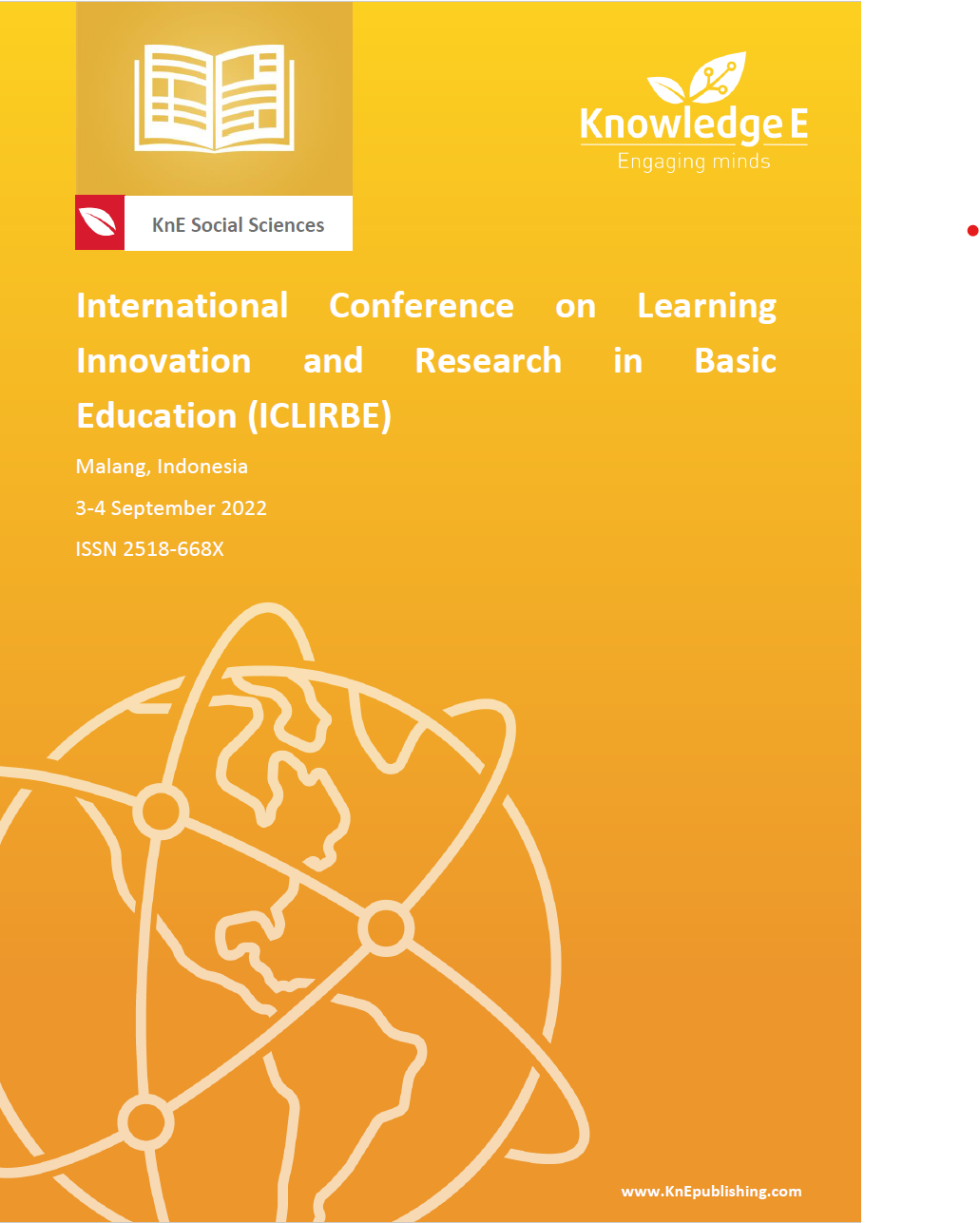Teaching Listening to Secondary Students: The Use of ICT
DOI:
https://doi.org/10.18502/kss.v8i8.13300Abstract
Teaching English to secondary students needs to be considered in order to formulate their learning levels and their needs. This is crucial in order for the learning process to be successful. However, as teaching English should be integrated into other language skills, the use of media which is mostly helpful for particular skills sometimes can be time consuming, and not all teachers are able to prepare and use it in their classes. Thus, a teacher has no time to practice one of the skills sufficiently using particular media to support the learning process. Listening skills for instance, technology in which nowadays has been developed to facilitate students to improve their listening skills is better to be used by English teachers in order to find suitable listening sources. Thus, a research question of how is the significance of BBC Learning English to be used in teaching listening skills in secondary students was tried to be endeavored. Hence, a quantitative method was used in this research. It was found that BBC learning English is significant to be used in English classes of secondary school. Moreover, the questionnaire that students filled out showed that their motivation and enthusiasm revealed a positive response.
Keywords: ICT, teaching English, listening skill, secondary students, media
References
[2] Abdulquadri, A., Mogaji, E., Kieu, T. A., & Nguyen, N. P. (2021). Digital transformation in financial services provision: A Nigerian perspective to the adoption of chatbot. Journal of Enterprising Communities: People and Places in the Global Economy, 15(2), 258-281.
[3] Al-Omari KM, Alomari MA, Qazaqzeh SM. The degree of possessing media education skills among classroom student-teachers at yarmouk university. Multicult Educ 2021;7:42-51.
[4] Asyifah DA, Indriani L. The student perspective: The impact of podcasts on EFL students listening comprehension. EDUVELOP. 2021;4(2):127-134.
[5] Boldizsár B. Teenagers and new media: Impact on foreign language proficiency and cultural sustainability. Euro J Sustain Dev. 2021;10(2):301-301.
[6] Corser, K., Dezuanni, M., & Notley, T. (2022). How news media literacy is taught in Australian classrooms. The Australian Educational Researcher, 49(4), 761-777.
[7] Fitria TN. Investigating the emergence of digital platforms for listening learning proficiency. Al-Lisan: Jurnal Bahasa (e-Journal). 2021;6(2):209-224.
[8] Ghonivita Y, Pahamzah J, Wijayanti MA. Improving students’ listening skills and vocabulary mastery through contextual teaching and learning by using online learning. J Engl Lang Teach Cult Stud. 2021;4(1):10-21.
[9] Govindarajan SD, Choo SG. The implication of practising blended learning, and conventional learning towards student’s achievement and attitude. Int J Educ Pedagogy. 2022;4(1):72-90.
[10] Ha GL, Ngo TCT. Challenges in learning listening comprehension via Microsoft Teams among English majors at Van Lang University. Int J TESOL Educ. 2021;1(3):142- 175.
[11] Hamdani H, Puspitorini F. Applying BBC learning english application in students’vocabulary mastery. Lexeme: J Linguist Applied Linguist. 2021;3(1):34-43.
[12] Hasibuan ME, Male H. Pre-service efl teachers’ perception of using podcast as a learning media to improve listening skills. JET ( J Engl Teach). 2022;8(2):300-311.
[13] Jie Z, Sunze Y. Investigating pedagogical challenges of mobile technology to English teaching. Interactive Learning Environments. 2021. 1-13.
[14] Khan RMI., Radzuan NRM, Farooqi SUH, Shahbaz M, Khan MS. Learners’ perceptions on whatsapp integration as a learning tool to develop efl vocabulary for speaking skill. Int J Lang Educ. 2021;5(2):1-14.
[15] Khasawneh MAS. Teacher perspective on language competences relation to learning difficulties in english learning. Journal Educational Verkenning. 2021;2(1):29- 37.
[16] Laeli AF. (Artikel) VOA VIDEO ADOPTED INSTRUCTION: AN ATTEMPT TO ENGAGE EFL STUDENTS’ACTIVE PARTICIPATION IN LISTENING ACTIVITIES. RIIL (Res Innov Lang Learn). 2021;4(1):18-30.
[17] Mahrlamova K, Chabanovych N. Implementation of interactive methodology in medical education: Blended learning approach, e-learning vs conventional learning. Linguist Cult Rev. 2021;5(S4):1154-1160.
[18] Mansur H, Utama AH. The evaluation of appropriate selection learning media at junior high school. Indonesian J Instruct Media Model. 2021;3(1):17-25.
[19] Nomozova M, Ismoilova M. Using authentic materials to improve listening skill. SO ‘NGI ILMIY TADQIQOTLAR NAZARIYASI. 2022;1(2):52-56.
[20] Said MM. Attitudes based behaviours of Tadulako University Psycholinguistics students in learning english. Turk J Comp Math Educ (TURCOMAT). 2021;12(13):7001- 7024.
[21] Sakkir G, Dollah S, Arsyad S, Ahmad J. Need analysis for developing writing skill materials using Facebook for English undergraduate students. Int J Lang Educ. 2021;5(1):542-551.
[22] Suharyadi S, Wulyani AN. EFL teachers’ reasons for selecting instructional materials during the COVID-19 pandemic. Bahasa dan Seni: Jurnal Bahasa, Sastra, Seni, dan Pengajarannya. 2022;50(1):49-62.
[23] Tuma F. The use of educational technology for interactive teaching in lectures. Ann Med Surg. 2021;62:231-235.
[24] Wahyuniar, W. (2021). The Correlation Between Creative Listening and Storytelling Skill. Media Informasi Penelitian Kabupaten Semarang, 3(2), 121-128.
[25] Zhang Y. A study on self-directed english intensive listening training based on the theory of learning strategy. Adv Educ Technol Psychol. 2021;5(3):101-111.

